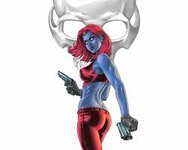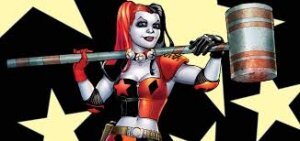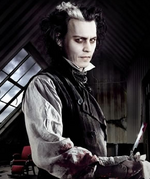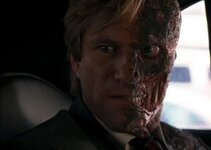J
Navigation
Install the app
How to install the app on iOS
Follow along with the video below to see how to install our site as a web app on your home screen.
Note: This feature may not be available in some browsers.
More options
Style variation
-
Café Life is the Colony's main hangout, watering hole and meeting point.
This is a place where you'll meet and make writing friends, and indulge in stratospherically-elevated wit or barometrically low humour.
Some Colonists pop in religiously every day before or after work. Others we see here less regularly, but all are equally welcome. Two important grounds rules…
- Don't give offence
- Don't take offence
We now allow political discussion, but strongly suggest it takes place in the Steam Room, which is a private sub-forum within Café Life. It’s only accessible to Full Members.
You can dismiss this notice by clicking the "x" box
You are using an out of date browser. It may not display this or other websites correctly.
You should upgrade or use an alternative browser.
You should upgrade or use an alternative browser.
- Status
- Not open for further replies.
J
Jason Byrne
Guest
S
Stephen Drake
Guest
None of this surprises me. Comics always were about flawed heroes and villains. After all, nobody's perfect. Flawed characters have always been popular. Captain Ahab, Captain Nemo, Captain Kirk...they all have "issues". Any superhero would be super screwed up, otherwise what's the point of the story? Can you think of a storyline where the hero is perfect? How screwed up would someone have to be to be "Perfect"?
Nicole Wilson
Colony Member
True and I don't think any of us are saying that most heroes are perfect. I think we were--at least I was--talking about really screwed up heroes. Looking at Jason's examples, it's kind of like the difference in Pirates of the Caribbean between Will, who has some issues but amounts to a pretty put-together hero, and Jack, who has lots of issues.None of this surprises me. Comics always were about flawed heroes and villains. After all, nobody's perfect. Flawed characters have always been popular. Captain Ahab, Captain Nemo, Captain Kirk...they all have "issues". Any superhero would be super screwed up, otherwise what's the point of the story? Can you think of a storyline where the hero is perfect? How screwed up would someone have to be to be "Perfect"?
Paul Whybrow
Full Member
Any good man who fights evil is in danger of turning into that which he opposes.
Friedrich Nietzsche put it well:
"Whoever fights monsters should see to it that in the process he does not become a monster. And when you look into the abyss, the abyss also looks into you."
Friedrich Nietzsche put it well:
"Whoever fights monsters should see to it that in the process he does not become a monster. And when you look into the abyss, the abyss also looks into you."
J
Jason Byrne
Guest
Love that quote. Tends to be a salient theme in a lot of my work.Any good man who fights evil is in danger of turning into that which he opposes.
Friedrich Nietzsche put it well:
"Whoever fights monsters should see to it that in the process he does not become a monster. And when you look into the abyss, the abyss also looks into you."
@Karen Gray, it should sound familiar to you...
K
Karen Gray
Guest
- Thread starter
- #37
Yup yup yupLove that quote. Tends to be a salient theme in a lot of my work.
@Karen Gray, it should sound familiar to you...
Nicole Wilson
Colony Member
I have a new frustrated hero to add to my list! Yas! Phil Coulson from Agents of SHIELD. I don't want to give away what happened in the winter finale (which ended for me ten minutes ago) in case someone hasn't seen it yet, but he definitely has some issues. 
S
Stephen Drake
Guest
I have a new frustrated hero to add to my list! Yas! Phil Coulson from Agents of SHIELD. I don't want to give away what happened in the winter finale (which ended for me ten minutes ago) in case someone hasn't seen it yet, but he definitely has some issues.
I agree, @Nicole Wilson . That he does! It's what makes him interesting.
But then, they all do.
Ah, superheroes. Batman driven by revenge, Spidey by guilt.
But consider Sherlock Holmes. A bit like Hercule Poirot, he doesn't seem to have any moral imperative, he is driven purely by the desire to prove how clever he is.
The odd thing about superhero stories is that they essentially re-tell the same story again and again. Hulk smash! Solving internal stories becomes a problem so long term love interests have to suffer the indignity of countless misunderstandings, kidnappings, breakups, loss of memories and even if they marry their true love they get killed off swiftly. Ongoing stories can't be resolved and the illusion of change is ultimately no change at all.
So all spidey stories retell Amazing Fantasy 15 and all Sherlock Holmes stories have an insoluble mystery that he solves. The stories become the crime or the villain. Doc Ock, Sandman, Green Goblin and Venom. Moriarty or a closed door mystery. Spidey persists and he overcomes, finds the monster's flaw (David hits Goliath in the eye with his slingshot).
Venom is interesting because he is the dark version of spidey, literally. And as someone else said, the antagonist is the mirror image of the hero. The Monster is what you could become, if you are not careful. That's implicit in Batman, very grey indeed with Wolverine, Punisher, X-Force.
But consider Sherlock Holmes. A bit like Hercule Poirot, he doesn't seem to have any moral imperative, he is driven purely by the desire to prove how clever he is.
The odd thing about superhero stories is that they essentially re-tell the same story again and again. Hulk smash! Solving internal stories becomes a problem so long term love interests have to suffer the indignity of countless misunderstandings, kidnappings, breakups, loss of memories and even if they marry their true love they get killed off swiftly. Ongoing stories can't be resolved and the illusion of change is ultimately no change at all.
So all spidey stories retell Amazing Fantasy 15 and all Sherlock Holmes stories have an insoluble mystery that he solves. The stories become the crime or the villain. Doc Ock, Sandman, Green Goblin and Venom. Moriarty or a closed door mystery. Spidey persists and he overcomes, finds the monster's flaw (David hits Goliath in the eye with his slingshot).
Venom is interesting because he is the dark version of spidey, literally. And as someone else said, the antagonist is the mirror image of the hero. The Monster is what you could become, if you are not careful. That's implicit in Batman, very grey indeed with Wolverine, Punisher, X-Force.
Last edited:
I have a new frustrated hero to add to my list! Yas! Phil Coulson from Agents of SHIELD. I don't want to give away what happened in the winter finale (which ended for me ten minutes ago) in case someone hasn't seen it yet, but he definitely has some issues.
I stopped watching SHIELD but I loved Daredevil and I've gotta say with a couple of episodes to go "Jessica Jones" is the best yet and miles away the best superhero show around.
J
Jason Byrne
Guest
Well — put, Nick. We've hit that dead horse with "there are no new stories" I don't know how many times, but superhero stories are one place where it really rings true — how many different ways can you portray "evil unstoppable force meets good immovable object?" Starring Awesome Man and Some Girl. Coming soon to Fox.Ah, superheroes. Batman driven by revenge, Spidey by guilt.
But consider Sherlock Holmes. A bit like Hercule Poirot, he doesn't seem to have any moral imperative, he is driven purely by the desire to prove how clever he is.
The odd thing about superhero stories is that they essentially re-tell the same story again and again. Hulk smash! Solving internal stories becomes a problem so long term love interests have to suffer the indignity of countless misunderstandings, kidnappings, breakups, loss of memories and even if they marry their true love they get killed off swiftly. Ongoing stories can't be resolved and the illusion of change is ultimately no change at all.
So all spidey stories retell Amazing Fantasy 15 and all Sherlock Holmes stories have an insoluble mystery that he solves. The stories become the crime or the villain. Doc Ock, Sandman, Green Goblin and Venom. Moriarty or a closed door mystery. Spidey persists and he overcomes, finds the monster's flaw (David hit's Goliath in the eye with his slingshot).
Venom is interesting because he is the dark version of spidey, literally. And as someone else said, the antagonist is the mirror image of the hero. The Monster is what you could become, if you are not careful. That's implicit in Batman, very grey indeed with Wolverine, Punisher, X-Force.
B
Bernard Stacey
Guest
- Thread starter
- #43
As a fan, I can't let this one go unchallenged!But consider Sherlock Holmes.... he is driven purely by the desire to prove how clever he is.
Holmes doesn't care if people think him clever, stupid, arrogant, polite... anything. His motivation is the solving of the puzzle for the puzzle's sake. He can and does disregard human feelings altogether and works purely to exercise his mind and for love of his subject. The reader often thinks he is clever of course, but for Holmes every problem is an intellectual exercise, nothing more. Apart from Irene Adler, possibly.
As a fan, I can't let this one go unchallenged!
Holmes doesn't care if people think him clever, stupid, arrogant, polite... anything. His motivation is the solving of the puzzle for the puzzle's sake. He can and does disregard human feelings altogether and works purely to exercise his mind and for love of his subject. The reader often thinks he is clever of course, but for Holmes every problem is an intellectual exercise, nothing more. Apart from Irene Adler, possibly.
Not according to books. He a consummate show-off.
Entirely off subject, Holmes made an appearance in one draft of my novel:
The great detective was looking out of the broad window of the sitting room as Thomas and Mr. Bliss were shown into his rooms in 221b Baker Street. He urged them both to take a seat, but did not immediately turn to look at them. Thomas took a seat beside a table, which was bestrewn with pamphlets and papers. He glanced at the nearest sheet.
The post-mortem effects of asphyxiation on European children, as compared to Orientals. Salutary reading on a Saturday morning.
Mr. Bliss sat down on the sofa, and crossed his legs carefully. He had passed over his hat to the housekeeper, and his head gleamed in the light from the window. He had dressed for the occasion in the darkest suit Thomas had seen yet, either pure black or very dark blue. Beneath the coat, he wore a dress shirt of brilliant white and an incongruent blue waistcoat with yellow stripes. Must make an effort for the great man, he had told Thomas when he had emerged from his room. He had not made any effort to repair the dark glasses though, Thomas noted, or remove them when they entered the building.
Mr. Sherlock Holmes turned from the window and looked at his visitors with two piercing eyes. He looked them both over carefully, starting with Thomas, and Thomas resisted the temptation to wriggle uncomfortably. Damned rude, he thought, to stare at guests or clients like that. When the detective transferred his attentions to the sofa, Thomas took a deep breath and forced his shoulders to relax. He felt the acid worm of anger in his stomach subside.
The detective fixed his regard on Mr. Bliss.
This should be interesting, Thomass thought. Holmes was rake-thin and imposingly tall, and held himself upright to his full height. His nose was long and aquiline, its sharpness exaggerated by his spare cheekbones. His eyes burnt with acuity.
He examined Mr. Bliss for some time, much longer than he had spent on Thomas. In contrast to Thomas, though, Mr. Bliss seemed to accept the examination with perfect equanimity, with the nearly invisible half smile that was becoming familiar to Thomas touching his lips. The dark lenses hid his eyes, and with them his thoughts.
“Incredible!” Holmes declared, finally. He turned towards the bookcase that stood full to bulging on the wall behind Thomas. “I am almost certain – but wait!” He seized a volume from its shelf, and furiously turned its pages, barely glancing at each. “You are black skinned, and therefore a Negro. As a Negro, your origins are African-“
“Perhaps all men originate in Africa,” said Mr. Bliss.
“Yes. I have read something recently that put such an argument. But I am not going back so far as the abandonment of the trees! I am seeking your own more recent origins, as you will be aware.”
“My origins may not be so recent, Sir. Our business here need not touch on the matter.”
Holmes looked at him sharply. “Indulge me, Sir, I beg of you. Apart from the small mystery of the odour of sulphur he emits, your companion here,” he waved a hand airily in Thomas’s direction, “his life is an open book to me. But you are different. Your face and bone structure do not fit that of the Negro-”
“Are black men so easily classified, then?” Mr. Bliss asked. He still maintained his absolute calm. “Does your book list them all?”
“Types, sir. Types and categories. Like butterflies or birds. All things can be divided by genus. People display characteristics, like the Slavic eye, or the Eskimo nose. And then there are hair types, tribal markings, modes of dress.”
Two lines appeared between Holmes’s eyebrows. “You are dressed in a suit made in Saville Row, by Barnaby. An unconventional cut, but perfectly respectable. You have no visible markings or piercings. You have no hair on your head at all! Your shoes are unusual, possibly from China-“
“Nepal,” Mr Bliss offered helpfully.
“Ah, yes! The white stitching! You smoke, but the scent of the brand eludes me, which is something that has rarely, if ever, happened since I take a particular interest in the subject.”
“I import my own mixture. Would you like to try some?” Mr. Bliss lit one of his curious cigarillos using his brass lighter. So curious even Sherlock Holmes does not recognise the brand, thought Thomas.
“The characteristics of all the known African types are classified in this volume, by nose, mouth, chin, bone structure, even skin tone. You most closely resemble a Moroccan type, although you are much darker, and you wear none of the jewellery or turban associated with North Africans.”
“Perhaps you will have to add a new category, just for me. I did not originate from anywhere near Morocco, and I do not choose to discuss my origins with you today. No doubt you will continue to deduce since it is in your nature to do so, but my friend here brings another problem for your consideration.” A large cloud of smoke rolled away from him, like a rumbling volcano.
Holmes considered for a moment.
“Very well.” Holmes sat down on the chair opposite Thomas, leant back and steepled his fingers. He focused his full attention on Thomas. “What is the nature of your problem?”
Thomas could almost feel the intensity of the man’s concentration. He looked at the hawk-like nose and pursed lips, and said:
“I need to find somebody. A girl. At least, a female.” He hesitated. “I last saw her twenty years ago.”
“Why do you need to find her?” asked the great detective. “What has happened to make it necessary after twenty years?”
Thomas was surprised by the question. He had run through his mind how to explain what had happened twenty years ago, and Mr. Sherlock Holmes wanted to talk about now.
“Do my reasons matter?” Thomas asked.
“Perhaps. If the girl in question stands to gain from a will, or is sought by a long-lost relative, then I can see no reason to keep it a secret, from me at least. On the other hand, I will not aid you to commit murder. But we can return to the issue. Tell your tale. You wish to find a female, who was presumably a girl when you last saw her. Proceed.”
“I will tell the tale. However, I will need you to listen first, and suspend your questions until I have finished.”
“And also willingly to suspend disbelief, as Coleridge would have it?” said Holmes.
God, he is sharp, Thomas thought. “Precisely.”
“Then proceed.”
But at that moment another personage entered proceedings. A man of medium height entered, with a definite military bearing, but carrying a slight limp. Holmes leapt up to introduce him.
“Dr. Watson! This is my dear friend and occasional chronicler of my cases. Allow me to introduce my guests. Mrs. Hudson has informed me that this gentleman’s name is Thomas Grimes, a cleric’s son, educated at Rugby, now a widower, and has until recently made a very good income as a pirate. The other gentleman is Mr. Ebenezer Bliss, about whom I have deduced practically nothing. Unless my intuition is wrong, Mr. Grimes is about to present me a tale which he feels will stretch my credulity, if not my powers of deduction.”
Thomas felt the hairs stand up on the back of his neck as he stood up to shake Dr. Watson’s hand. I won’t give him the satisfaction of looking amazed, he thought, but he has probably deduced it anyway, from a twitch of my arm or spasm of an eyebrow. He could quibble about the “pirate” description, but that was a matter of semantics.
“Are you sure you want me to stay?” Dr. Watson wanted to know, when the introductions were complete. “If the matter is confidential, or you wish to confine your story to Mr. Holmes alone, I will perfectly understand. It is his deductive powers, not my ability to commentate, that you seek.”
The great detective was looking out of the broad window of the sitting room as Thomas and Mr. Bliss were shown into his rooms in 221b Baker Street. He urged them both to take a seat, but did not immediately turn to look at them. Thomas took a seat beside a table, which was bestrewn with pamphlets and papers. He glanced at the nearest sheet.
The post-mortem effects of asphyxiation on European children, as compared to Orientals. Salutary reading on a Saturday morning.
Mr. Bliss sat down on the sofa, and crossed his legs carefully. He had passed over his hat to the housekeeper, and his head gleamed in the light from the window. He had dressed for the occasion in the darkest suit Thomas had seen yet, either pure black or very dark blue. Beneath the coat, he wore a dress shirt of brilliant white and an incongruent blue waistcoat with yellow stripes. Must make an effort for the great man, he had told Thomas when he had emerged from his room. He had not made any effort to repair the dark glasses though, Thomas noted, or remove them when they entered the building.
Mr. Sherlock Holmes turned from the window and looked at his visitors with two piercing eyes. He looked them both over carefully, starting with Thomas, and Thomas resisted the temptation to wriggle uncomfortably. Damned rude, he thought, to stare at guests or clients like that. When the detective transferred his attentions to the sofa, Thomas took a deep breath and forced his shoulders to relax. He felt the acid worm of anger in his stomach subside.
The detective fixed his regard on Mr. Bliss.
This should be interesting, Thomass thought. Holmes was rake-thin and imposingly tall, and held himself upright to his full height. His nose was long and aquiline, its sharpness exaggerated by his spare cheekbones. His eyes burnt with acuity.
He examined Mr. Bliss for some time, much longer than he had spent on Thomas. In contrast to Thomas, though, Mr. Bliss seemed to accept the examination with perfect equanimity, with the nearly invisible half smile that was becoming familiar to Thomas touching his lips. The dark lenses hid his eyes, and with them his thoughts.
“Incredible!” Holmes declared, finally. He turned towards the bookcase that stood full to bulging on the wall behind Thomas. “I am almost certain – but wait!” He seized a volume from its shelf, and furiously turned its pages, barely glancing at each. “You are black skinned, and therefore a Negro. As a Negro, your origins are African-“
“Perhaps all men originate in Africa,” said Mr. Bliss.
“Yes. I have read something recently that put such an argument. But I am not going back so far as the abandonment of the trees! I am seeking your own more recent origins, as you will be aware.”
“My origins may not be so recent, Sir. Our business here need not touch on the matter.”
Holmes looked at him sharply. “Indulge me, Sir, I beg of you. Apart from the small mystery of the odour of sulphur he emits, your companion here,” he waved a hand airily in Thomas’s direction, “his life is an open book to me. But you are different. Your face and bone structure do not fit that of the Negro-”
“Are black men so easily classified, then?” Mr. Bliss asked. He still maintained his absolute calm. “Does your book list them all?”
“Types, sir. Types and categories. Like butterflies or birds. All things can be divided by genus. People display characteristics, like the Slavic eye, or the Eskimo nose. And then there are hair types, tribal markings, modes of dress.”
Two lines appeared between Holmes’s eyebrows. “You are dressed in a suit made in Saville Row, by Barnaby. An unconventional cut, but perfectly respectable. You have no visible markings or piercings. You have no hair on your head at all! Your shoes are unusual, possibly from China-“
“Nepal,” Mr Bliss offered helpfully.
“Ah, yes! The white stitching! You smoke, but the scent of the brand eludes me, which is something that has rarely, if ever, happened since I take a particular interest in the subject.”
“I import my own mixture. Would you like to try some?” Mr. Bliss lit one of his curious cigarillos using his brass lighter. So curious even Sherlock Holmes does not recognise the brand, thought Thomas.
“The characteristics of all the known African types are classified in this volume, by nose, mouth, chin, bone structure, even skin tone. You most closely resemble a Moroccan type, although you are much darker, and you wear none of the jewellery or turban associated with North Africans.”
“Perhaps you will have to add a new category, just for me. I did not originate from anywhere near Morocco, and I do not choose to discuss my origins with you today. No doubt you will continue to deduce since it is in your nature to do so, but my friend here brings another problem for your consideration.” A large cloud of smoke rolled away from him, like a rumbling volcano.
Holmes considered for a moment.
“Very well.” Holmes sat down on the chair opposite Thomas, leant back and steepled his fingers. He focused his full attention on Thomas. “What is the nature of your problem?”
Thomas could almost feel the intensity of the man’s concentration. He looked at the hawk-like nose and pursed lips, and said:
“I need to find somebody. A girl. At least, a female.” He hesitated. “I last saw her twenty years ago.”
“Why do you need to find her?” asked the great detective. “What has happened to make it necessary after twenty years?”
Thomas was surprised by the question. He had run through his mind how to explain what had happened twenty years ago, and Mr. Sherlock Holmes wanted to talk about now.
“Do my reasons matter?” Thomas asked.
“Perhaps. If the girl in question stands to gain from a will, or is sought by a long-lost relative, then I can see no reason to keep it a secret, from me at least. On the other hand, I will not aid you to commit murder. But we can return to the issue. Tell your tale. You wish to find a female, who was presumably a girl when you last saw her. Proceed.”
“I will tell the tale. However, I will need you to listen first, and suspend your questions until I have finished.”
“And also willingly to suspend disbelief, as Coleridge would have it?” said Holmes.
God, he is sharp, Thomas thought. “Precisely.”
“Then proceed.”
But at that moment another personage entered proceedings. A man of medium height entered, with a definite military bearing, but carrying a slight limp. Holmes leapt up to introduce him.
“Dr. Watson! This is my dear friend and occasional chronicler of my cases. Allow me to introduce my guests. Mrs. Hudson has informed me that this gentleman’s name is Thomas Grimes, a cleric’s son, educated at Rugby, now a widower, and has until recently made a very good income as a pirate. The other gentleman is Mr. Ebenezer Bliss, about whom I have deduced practically nothing. Unless my intuition is wrong, Mr. Grimes is about to present me a tale which he feels will stretch my credulity, if not my powers of deduction.”
Thomas felt the hairs stand up on the back of his neck as he stood up to shake Dr. Watson’s hand. I won’t give him the satisfaction of looking amazed, he thought, but he has probably deduced it anyway, from a twitch of my arm or spasm of an eyebrow. He could quibble about the “pirate” description, but that was a matter of semantics.
“Are you sure you want me to stay?” Dr. Watson wanted to know, when the introductions were complete. “If the matter is confidential, or you wish to confine your story to Mr. Holmes alone, I will perfectly understand. It is his deductive powers, not my ability to commentate, that you seek.”
A
Alistair Roberts
Guest
- Thread starter
- #46
Spot on Bernard 
F
Fran Connor
Guest
As has been said above it is all down to you as the writer. As a reader I want to see a well rounded antagonist who isn't a pantomime villain and has depth. The character or characters who are opposing the protagonist come across as more interesting if they have some vulnerability and a reason for their opposition other than some cliche. As a writer I enjoy writing the villain. Fran Connor
Spot on Bernard
This is straight out of the Oscuridad school of moderation.
Richard Sutton
Flash Club Supremo
KG, I once wrote an antagonist with so much character depth, I guess, that I had a reader contact me to tell me how sad she was when I killed him off! He was a nasty toady, but there was a very human reason for his behavior. I just didn't feel the need to redeem him.
J
Jason Byrne
Guest
YOU sir have done great works...KG, I once wrote an antagonist with so much character depth, I guess, that I had a reader contact me to tell me how sad she was when I killed him off! He was a nasty toady, but there was a very human reason for his behavior. I just didn't feel the need to redeem him.
K
KG Christopher
Guest
- Thread starter
- #51
In reading all of the comments above, its clear, there is no black and white, but there is a myriad shades of empathy that we weave into our art. A big thank you for all your comments, this was one that really adressed my self doubts
- Status
- Not open for further replies.
Café Life Tag Cloud
2025
agent
author
authors
blog
book
books
cafe
challenge
christmas
competition
conferences
contest
creativity
december
editing
fantasy
fiction
inspiration
life
literary
literature
litopia
love
motivation
music
new
news
novel
november
philosophy
poetry
prize
publishing
reading
self-publishing
sentence
shakespeare
short
short story
stories
story
storytelling
time
words
world
write
writer
writers
writing
Latest Articles By Litopians
-
When We Shot the Last Rhino
. A fabled hunter from Milan or Mombasa or somewhere raised his arms high and screamed in bloody t ...
-
On the shoulders of giants.
I’ve got to stop hanging out on X. The writing community has, yet again, been rent apart by a schi ...
-
Lit Mags for Beginners – Part Two
Last time we talked about finding publications to send your work to. Now you’ve imagined your stor ...
-
A Word from Nigel
This is Nigel. Nigel is a horse. More specifically, Nigel is a feral stallion responsible for a herd ...
-
Lit Mags for Beginners – Part One
It’s less than a year since I started writing short stories, having only worked on novel-length fi ...
-
Days Like Those: Jacob, James and the BSG
February 2018… Mrs Treaclechops and I took grandchildren Jacob (aged four) and James (aged three) ...
-
Matt-y numty had a great fall
I had an appointment in Berlin’s Mitte recently. Since then, I’ve been thinking a lot. Now, the ...
What Goes Around
Comes Around!






